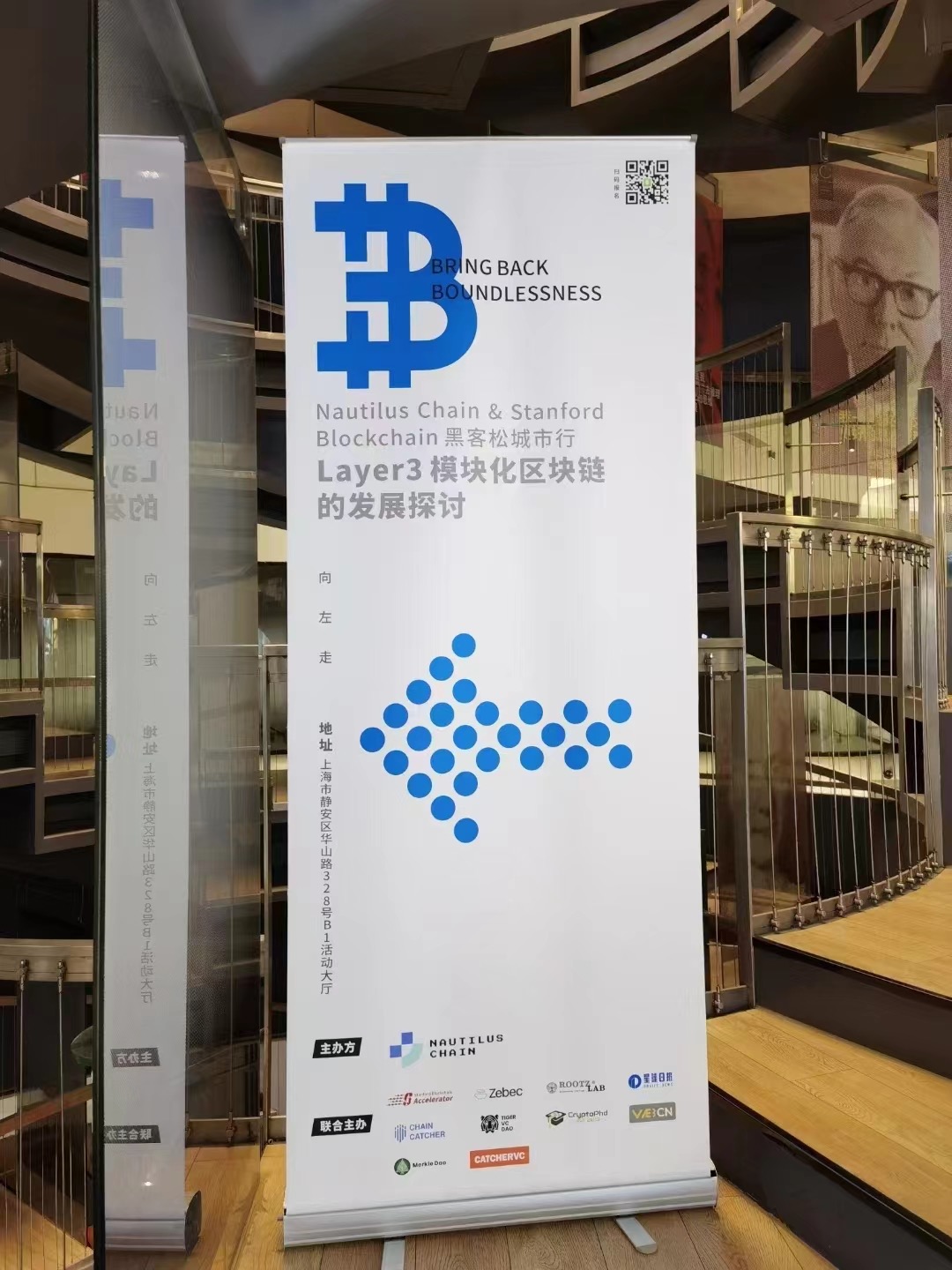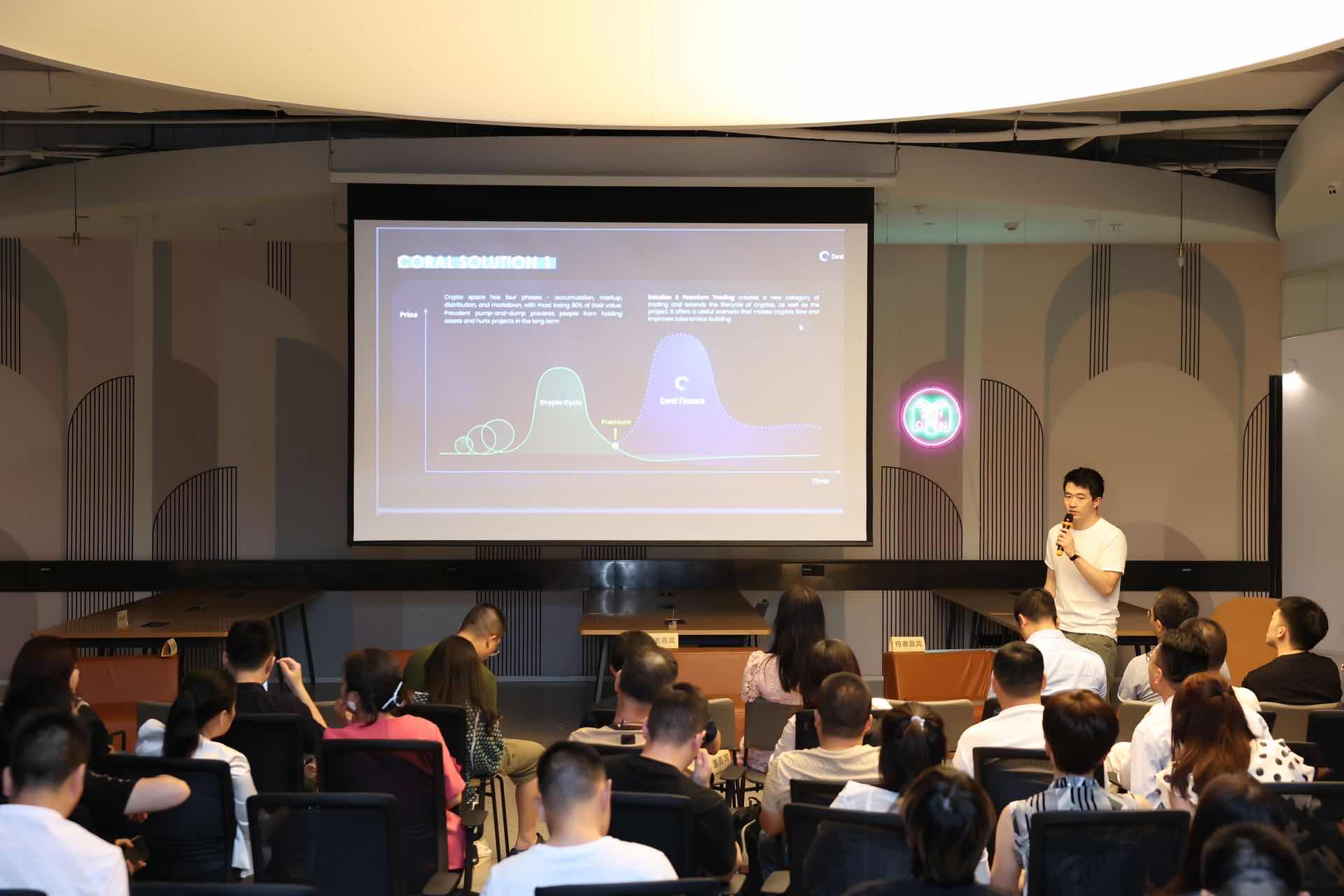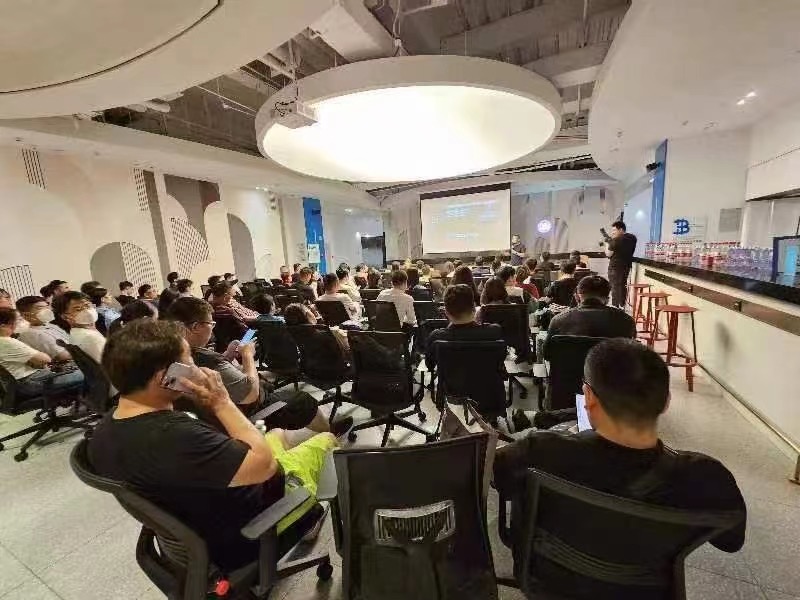On June 9th, Beijing time, the global tour with the theme of Discussion on the Development of Layer 3 Modular Blockchain sponsored by Nautilus Chain was successfully held in Shanghai. The co-organizers of this sharing session also included Stanford Blockchain Accelerator, Zebec Protocol, Tiger VC DAO, Crypto PHD, Rootz Labs, Chain Catcher, etc. In addition to the above partners, Wanxiang Blockchain Lab also supported this event.

Nautilus Chain plans to continue to hold a series of modular blockchain technology sharing sessions in major cities in Asia, with the purpose of promoting blockchain technology, especially the future of modular blockchain. It hopes that through these activities, it will enhance the publics understanding of blockchain technology and promote the development of blockchain technology in Asia. At the same time, the sharing session is aimed at enhancing cognition and is carried out in the form of pure technology ecological sharing and popularization. At the same time, we specifically invite well-known project audit, investment research, capital and technology community partners to participate and discuss modular blockchain. In-depth discussions on topics such as the development trend, challenges and opportunities, and potential business opportunities. It is reported that this series of activities is planned to be held in major Asian cities such as Tokyo, Shenzhen, Shanghai, Hong Kong, Singapore, Seoul, Tokyo, Mumbai, Bangalore, etc. The sharing sessions in Tokyo and Shenzhen have been successfully held.
At the sharing meeting in Shanghai on June 9, the guests present included Zebec Protocol co-founder Sam Thapaliya, PosiSwap founder Chris Rung, Coral Finance partner ColdGrey, Eclipse CEO Neel Somani, co-founder Bmer, Tiger VC DAO Community representatives Alan SUNJet, LD Capticil Hakuna, Hacash.com co-founder Ken, etc.

As a sharing session with the theme of Layer3, Zebec Protocol founder Sam Thapaliya first introduced the concept of Layer3 and introduced the Layer3 concept of Nautilus Chain. He said that Nautilus Chain itself is not like other Layer2 and Layer3. One layer of patching is the main purpose. Instead, it uses a highly compatible modular design to build highly composable module facilities based on Layer0 and Layer1 facilities such as Celestia and Eclipse to achieve efficient sharding and data security. This chain not only allows developers to build efficient parallel modular Rollups, these parallel designed Layer 2 layers will further promote expansion and efficiency, and are expected to achieve plug-and-play customized module bottom layers without the need to reinvent the wheel.

In addition, Sam Thapaliya, as the co-founder of Zebec Protocol, also gave a further introduction to the Zebec ecosystem and the importance of Nautilus Chain to the development of the Zebec ecosystem. He said that the Zebec ecology initially used the Zebec Protocol as the core payment method to allow encrypted assets to play a role in more fields. After the Zebec Protocol business continues to grow, the development of the Zebec ecosystem is no longer limited to the protocol. The overall expectation is to develop into the public chain field to explore more business forms and deeply integrate into the Web2 world. Nautilus Chain itself is a project launched by the Zebec community. It is currently the purest and most innovative Layer 3 architecture. It is technologically advanced and forward-looking. Nautilus Chain will also become a pioneer in the development of Zebec ecology into the public chain field. Ecology, and take the lead in exploring the traditional business field.
PoseiSwap founder Chris Rung said that PoseiSwap, as the first DEX on Nautilus Chain, is expected to be the first to set an example for the development of Zebec ecology to the Web2 field. Based on the bottom layer of Nautilus Chain, PoseiSwap will explore in the direction of RWA in the near future to trade more Real world assets.
In addition to the speeches of Sam Thapaliya and Chris Rung, other major guests also shared their understanding of Layer3 from their respective fields, and looked forward to its future development potential.
After the event in Shanghai, the Nautilus Chain Global Tour will continue in the next stop in Singapore as planned. While hosting the global tour, Nautilus Chain also co-sponsored hackathon events with partners such as Stanford Blockchain Accelerator, Zebec Protocol, Rootz Lab, etc. to help more high-quality developers participate in the development of the Web3 world and promote on-chain Innovation and application of facilities, and promote the development of Layer3 technology.
Currently, the hackathon is actively accepting registration
(https://dorahacks.io/hackathon/stanfordhack/detail)
Nautilus Chain is currently in the test network stage, and the main network is expected to be launched soon. In addition to Nautilus Chain, early ecological projects such as PoseiSwap will also soon launch the market, such as IDO, airdrops and other activities. To learn more, you can follow the official Nautilus Chain social media.
Twitter: https://twitter.com/nautilus_chain
Telegram: https://t.me/nautchain

